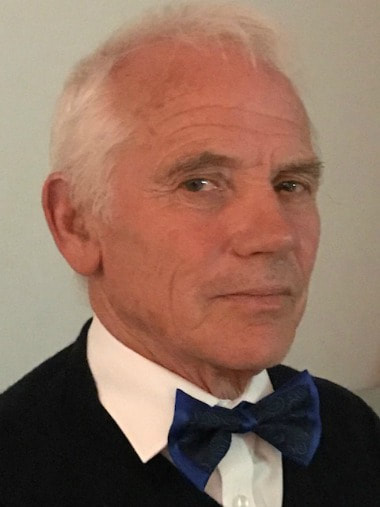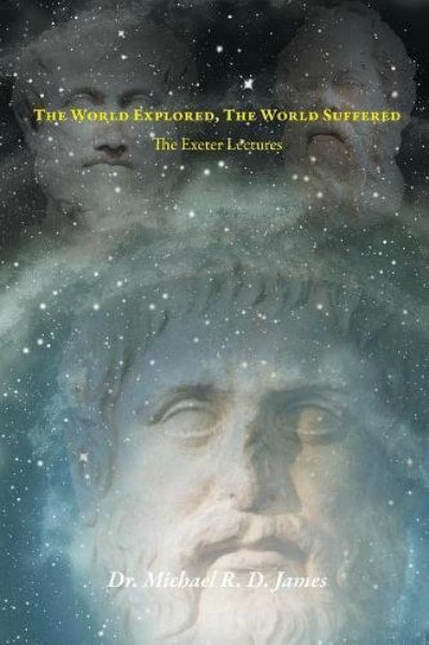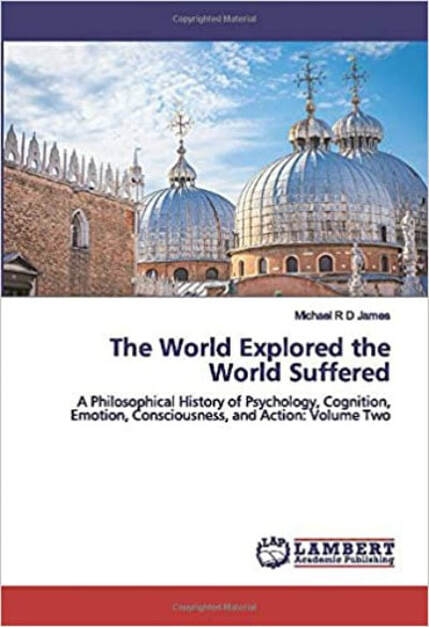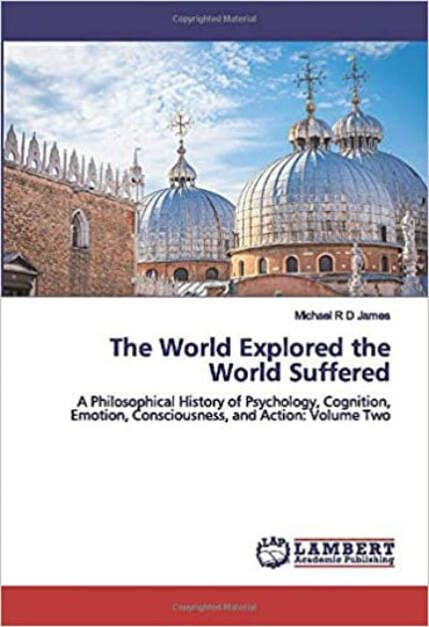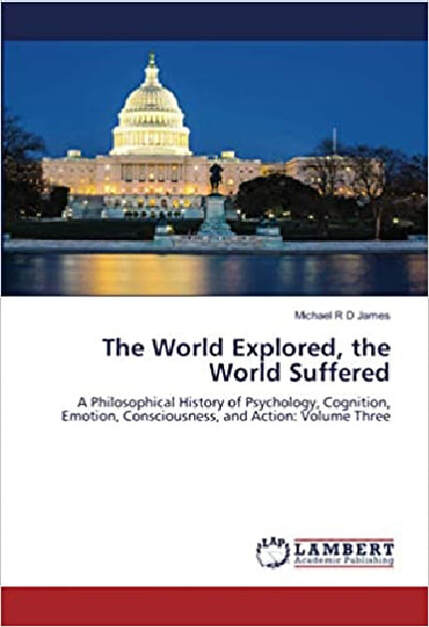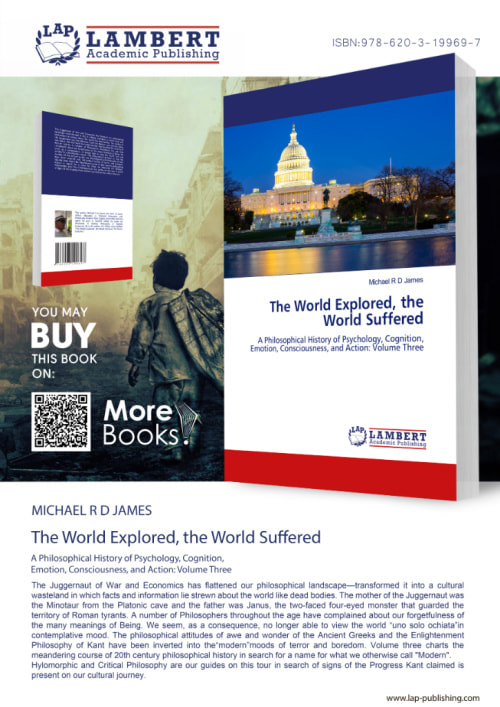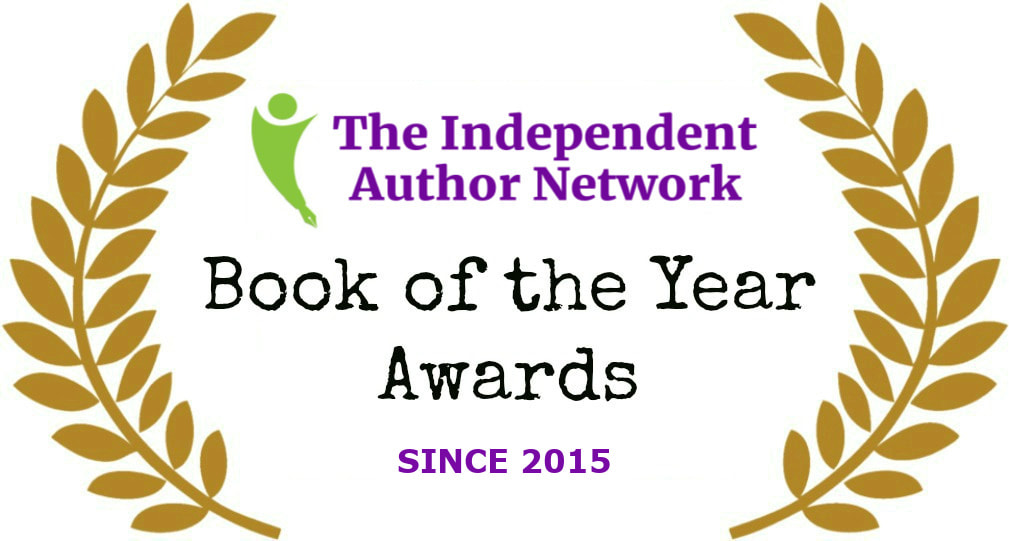Michael R D James
|
Michael R D James was born in South Africa and lived in Cape Town for 16 years. He travelled to England and was educated at Grammar School, Exeter University (B.ed) and Birmingham University (B.A and M.A. in Philosophy). He moved to Sweden in 1979 and has lived there for 38 years, taking his doctorate at Uppsala University in 1987 in Kantian Philosophy. For the past 24 years he has been lecturing in the International Baccalaureate Program (IB) and teaches the subjects of Philosophy, Psychology, and Theory of Knowledge at Sigtunaskolan Humanistiska Läroverket (the Alma Mater of Olof Palme, the present King of Sweden, Curt Nicolin, Peter and Marcus Wallenberg and Carl Bennet) He introduced World schools Debating into Sweden and was the Swedish Schools team Manager between 2008 and 2013, coaching the team at the World Championships at Qatar and Dundee. His trilogy "The World Explored, the World suffered" is both an attempt, firstly, to bring student life into the arena of everyday existence and also, secondly, an attempt to introduce the curious to the study of Philosophy. He enjoys reading, traveling, exercising, listening to music, being with his family, and walking his dog. He currently lives in Uppsala.
|
The World Explored, the World Suffered: The Exeter lectures
|
Philosophical educational fiction
The World Explored, The World Suffered: The Exeter Lectures is the first part of a trilogy and is a work of philosophical/ educational fiction. Its fictional component is composed of a middle-aged Romeo-Juliet drama which ends with two deaths in Venice and a youthful adventure that takes Robert, the narrator from trauma in South Africa to a teacher training institute in England where he discovers Philosophy and befriends an alcoholic lecturer who had once studied under Wittgenstein. The educational component is composed of a series of lectures on the philosophy of religion, psychoanalysis, aesthetics, ethics, the philosophy of natural science, human science and mathematics, philosophical psychology, political science, philosophy of education. Three different lecturers introduce the reader to the world of Philosophy and the world of Education seen through the eyes of Socrates, Plato, Aristotle, Descartes, Hobbes, Hume, Kant, Schopenhauer, Freud, William James, Wittgenstein Heidegger, Sartre, Merleau-Ponty, Arendt, Quine, Cavell, Paul Ricoeur, Brian O Shaughnessy, R. S. Peters, Paul Hirst, Hudson, Adrian Stokes, T S Eliot, Julian Jaynes. The book attempts to take the reader on a philosophical journey from curiosity to commitment and it is hoped that the trilogy will serve as a general introduction to Philosophy for all who are curious about the eternal Philosophical questions such as “What is the nature of Reality?” “Is God merely an idea in our minds?” “Is the soul a function of the body?” What is Justice?” “What is ethics?” “What is the role of Education in the life of the individual and society?”How should we characterize the feeling of the sublime?” “How shall we characterize the feeling of the beautiful?” “What properties do great works of Art possess?” What is the philosophical role of Psychoanalysis?” “How shall we philosophically characterize the role of language in our understanding of the world?” “What is the meaning of life?” |
The World Explored, the World Suffered: A Philosophical History of Psychology, Cognition, Emotion, Consciousness, and Action: Volume One
|
Non-Fiction, Philosophy, Theoretical Psychology
It is almost as if the Delphic Oracle's challenge to "Know thyself" is on everybody's mind in our contemporary culture but no one knows how to go about the task. Psychology is, of course, the "modern response" to this challenge but the kind of knowledge it has produced does not meet the challenge and this calls into question the "divorce" between Psychology and Philosophy during the late 1800s in the wake of Hegel and Schopenhauer's "revisionist" approach to Philosophy. This work traces the origins of our thinking about the world we live in and our place in it. The Ancient Greeks beginning with Thales and continuing with the reflections of Heraclitus, Parmenides, Anaxagoras, Socrates, Plato, and Aristotle provide us with a "Garden of Eden" in terms of a reflective base upon which to found answers to aporetic questions that arise in relation to our awe and wonder in the face of world and our moral personality. This is the beginning of the Philosophical History of Philosophy and Psychology that are like the two faces of Janus looking in different directions for the same answers. Both volumes of the work aim to reveal the importance of the works of Aristotle, Kant and Wittgenstein. |
The World Explored, The World Suffered: A Philosophical History of Psychology, Cognition, Emotion, Consciousness, and Action: Volume Two
|
Non-Fiction, Philosophy, Theoretical Psychology
The Golden Age of Ancient Greece, the Renaissance, and the Enlightenment are three historical ages with significant underlying Philosophical and Educational intent. In this work the image of Ariadne’s thread in the labyrinth where the Leviathan-like Minotaur dwells is used to illustrate the hidden cultural phenomenon of continuity of ideas that sustain our Cultural journey throughout ages. The ideas of Aristotle and Kant are key arenas of achievement in our cultural History. Volume I of this work, focussed extensively on the waning of Aristotle’s influence in the journey of ideas up to an including the Philosophy of Rousseau. Volume II focuses on the waxing of Aristotelian ideas in the Philosophy of Kant and the subsequent waning of Kantian Philosophy at the hands of “modern thinkers” influenced by Hegel, Science, and Economics. The “modern age” is in our eyes a misnomer because the next candidate for the title ”Age” must contain events of greater significance than landing on the moon and the creation of atomic bombs. The next age we will argue in Volume III will be the age of Philosophical Cosmopolitanism brought about by manifold globalisation forces we are experiencing today. |
The World Explored the World Suffered: A Philosophical History of Psychology, Cognition, Emotion, Consciousness, and Action: Volume Three
|
Non-Fiction, Philosophy, Psychology, Education, History
The Juggernaut of War and Economics has flattened our philosophical landscape—transformed it into a cultural wasteland in which facts and information lie strewn about the world like dead bodies. The mother of the Juggernaut was the Minotaur from the Platonic cave and the father was Janus, the two-faced four-eyed monster that guarded the territory of Roman tyrants. A number of Philosophers throughout the age have complained about our forgetfulness of the many meanings of Being. We seem, as a consequence, no longer able to view the world “uno solo ochiata” in contemplative mood. The philosophical attitudes of awe and wonder of the Ancient Greeks and the Enlightenment Philosophy of Kant have been inverted into the “modern” moods of terror and boredom. Volume three charts the meandering course of 20th century philosophical history in search for a name for what we otherwise call "Modern". Hylomorphic and Critical Philosophy are our guides on this tour in search of signs of the Progress Kant claimed is present on our cultural journey. |

